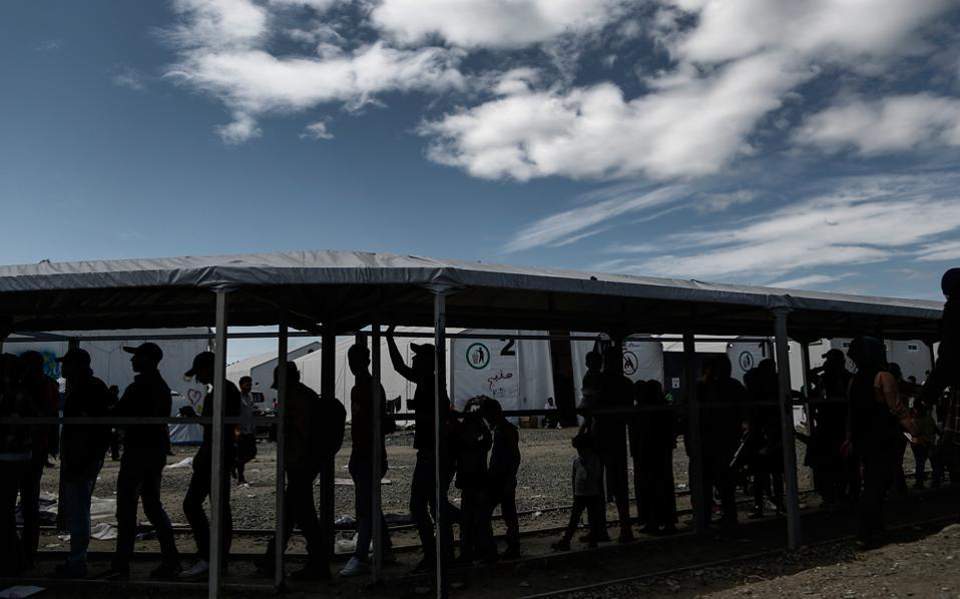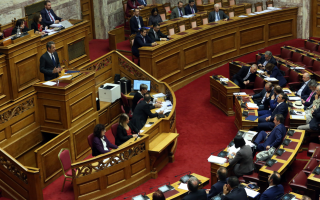Greek Parliament approves stricter asylum law

Greek MPs have approved a government bill aimed at easing pressure on the Aegean islands by speeding up asylum procedures and returns of migrants not meriting international protection to Turkey.
The bill was backed by MPs from New Democracy and the center-left Movement for Change alliance. SYRIZA, the Greek Communist Party (KKE), Greek Solution and Mera25 voted against.
The vote came after a tense day of debate in Parliament, with Prime Minister Kyriakos Mitsotakis clashing with SYRIZA leader Alexis Tsipras over their parties’ respective approaches to the refugee problem, and following protests by human rights groups.
Addressing Parliament before the vote, Mitsotakis declared that Greece was acquiring “a clear and functional asylum system” that would protect refugees but would not “throw its gates wide open” to all.
“The asylum law gives a clear message: Those who know they do not merit asylum but try to enter and stay in our country will no longer be tolerated,” Mitsotakis said.
“Our country knows what being a refugee means and will offer shelter to those in danger,” he added. “But this will be done according to rules.”
Tsipras accused Mitsotakis of “extremist rhetoric” while New Democracy was in opposition and of lying about SYRIZA’s ostensibly lax migration policy.
Earlier on Thursday, Europe’s top human rights official called for the immediate transfer of migrants to the Greek mainland to ease pressure on the islands, warning of an “explosive” situation.
“Urgent measures are needed to address the desperate conditions in which thousands of human beings are living,” the Council of Europe’s Commissioner for Human Rights Dunja Mijatovic said after visiting camps on Lesvos and Samos and in Corinth. Conditions have “dramatically worsened over the past 12 months,” she said.
However, Mijatovic also expressed concerns about the asylum bill, indicating that it could lead to other human rights abuses as it allows the detention of migrants for longer periods of time and makes it harder for them to appeal rejected asylum applications.





